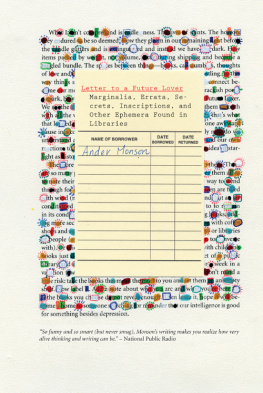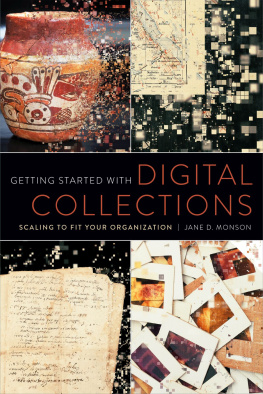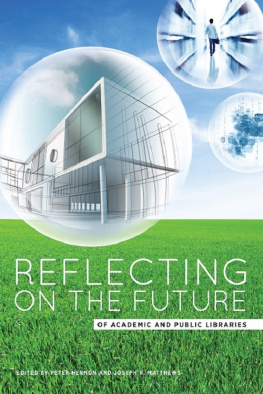LETTER TO A FUTURE LOVER

Marginalia, Errata, Secrets, Inscriptions, and Other Ephemera Found in Libraries
ANDER MONSON
Graywolf Press
Copyright 2015 by Ander Monson
This publication is made possible, in part, by the voters of Minnesota through a Minnesota State Arts Board Operating Support grant, thanks to a legislative appropriation from the arts and cultural heritage fund, and through a grant from the Wells Fargo Foundation Minnesota. Significant support has also been provided by Target, the McKnight Foundation, Amazon.com, and other generous contributions from foundations, corporations, and individuals. To these organizations and individuals we offer our heartfelt thanks.

Published by Graywolf Press
250 Third Avenue North, Suite 600
Minneapolis, Minnesota 55401
All rights reserved.
www.graywolfpress.org
Published in the United States of America
Printed in Canada
ISBN 978-1-55597-706-1
Ebook ISBN 978-1-55597-338-4
2 4 6 8 9 7 5 3 1
First Graywolf Printing, 2015
Library of Congress Control Number: 2014948534
Cover design and art: Marian Bantjes
This book is for Megan and Athena ,
the first two entries on the first shelf.
Having fallen asleep reading in the library, you awake in a dark, unfamiliar room. On a pedestal, lit by a lamp or an LED, you see a book. You open it. There appears to be at least two ways to read it. You may decide whether to just flip or scroll to the next page, however you usually read books. Or the adventurous reader might follow or make her own.
LETTER TO A FUTURE LOVER

A

is an arbitrary place to start, I know, my hand inside a book, my heart inside a book, this one Pierce Butlers Books and Libraries in Wartime (1945), not checked out since its last returning sixty-eight years ago. To run a finger along this page is to consult a reading record and to caress the past. I address the past with this list of lovelinesses, things I found in libraries over years. Years are threats that libraries oppose, even if eventually its necessary to weed the stacks: we cant keep everything forever.
Sixty-eight years without a reader! More than the duration of a life for many (especially during war), still it isnt so much, reader, in geologic time. (What is a moraine but a tectonic collection?) Yet still it speaks. What do libraries mean in wartime? What do they mean when we are not at war? We are currently at war, even if its easy to forget our foreign complications unless someone we love is over there. The names of those beloved and how they felt and smelled to us become a constant hum that soundtracks our days until they are returned on a designated date, also like a book. A book is taken out. Perhaps it is read. Then it is returned. Or in some cases it just rests on a readers bookshelf unremembered. Or maybe the last patron died of dehydration with this book in hand and it was placed aside respectfully when she was found, and it was cleaned and deemed relevant enough to return it these decades later, so only a week ago it made it back, thus explaining the long lapse in our attentions to its contents. Instead it was loved and read each night, maybe because it documented a tiny story, say that of the makeshift Vilna ghetto library under German occupation, one that might otherwise be forgotten beneath all the other stories if the patron did not reread it each night. To archive is political. To keep a story on a shelf or to remember then retell it means that it will be more likely to exist to those who come after we have gone. It will all be gone in time. Maybe this is the best we can do.
In this place of preservation, its not hard to be reminded of those weve lost or fear we might, those who were due but never came. A librarians conversation, a spine-cracked paperback, a human hair, a whiff of sandalwood in air: each of these might disappear for a year or more and fold the past into the present and pound a nail through the intersection. Patron, in this way were young again; we remember; were alive.
AI

Might as well be the start of something artful, an entry point or an attempt to open. I dont just mean the poet Ai though you could try her too, from beyond or from a book, where what is left of her now resides after she passed. Maybe I mean the maned sloth, found only on the eastern edge of Brazil, which takes its name from sin and is ill-branded for the future. Its on a slow boat there with its tufts of fur and its disdain for our accelerated lives. These sloths rarely descend from the trees because, when on a level surface, they are unable to stand and walk, only being able to drag themselves along with their front legs and claws. They travel to the ground only to defecate or to move between trees when they cannot do so through the branches. The sloths main defenses are to stay still and to lash out with its formidable claws. I quote from Wikipedia because, like the ai, I prefer to stay still and lash out with my formidable claws. Oh, that is obviously a lie. I have claws but will not stay still for long. By trying to I hope to learn something new. The ais habitat is constantly under threat.
Maybe you already know that a book is an artificial intelligence, designed to be tried on and played obsessively like a software subroutine, a difficult first-person shooter scene, or a favorite song youve listened to too long. Youre here because you liked its eyes, the way it dots them with hearts in handwritten notes from years ago. Try it on for size. Ideally you found this AI in a library, its natural habitat, an ideal vehicle for speaking to the future, even if it is under threat. But everything is threatened in this age. Its as if nothing can shine or mean unless we threaten it with axes, with budget cuts, with obsolescence, with oblivion.
You should know this is not the only version of the book. First, it snuck in under others covers, a little at a time. I sent these essays into the world inside books I found and spent an hour or more inside. Some of these were subsequently reprinted, bound or loose, in magazines. Then it was in a box, unordered, unbound, big and pretty and fancy in a limited edition. I liked that fine.











![Anita Anand - The Library Book. Anita Anand ... [Et Al.]](/uploads/posts/book/40194/thumbs/anita-anand-the-library-book-anita-anand-et.jpg)



